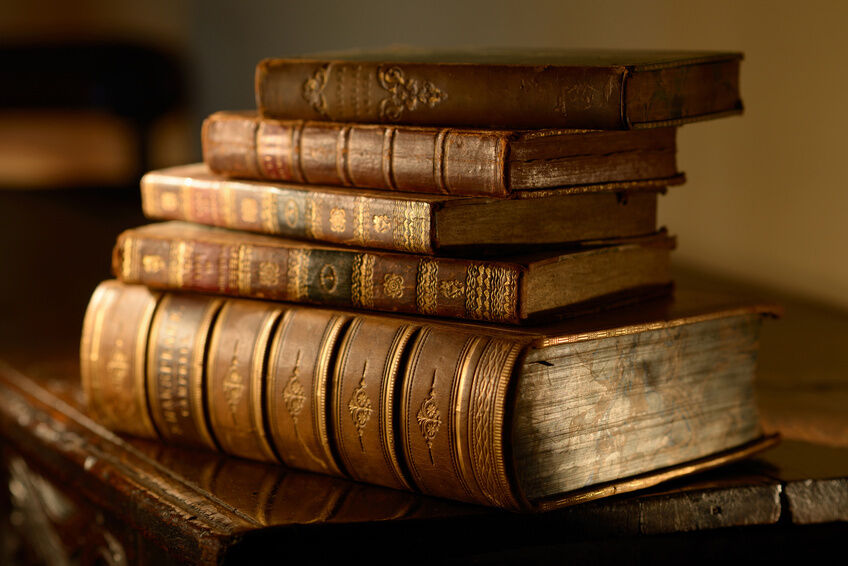
Beyond the Surface: 15 Catholic Books to Explore
|
|
Time to read 6 min
|
|
Time to read 6 min
The Catholic Church has a rich literary tradition that spans centuries, offering profound insights into faith, morality, philosophy, and the human experience. This post delves into fifteen essential books by Catholic authors, exploring their significance and impact on readers.
Meditations on the Life of Christ by St. Augustine: This seminal work invites readers into a profound contemplation of Jesus Christ's life. Augustine's exploration of themes such as sin, grace, and divine love is particularly profound in Book XI, where he delves into the nature of evil and the problem of free will.
Imitation of Christ by Thomas à Kempis: A timeless guide to spiritual growth, this book emphasizes humility, detachment from worldly desires, and a focus on God's love. The concept of the "interior castle," a metaphor for the soul's journey towards God, is particularly powerful in Book Three.
The Confessions by St. Augustine: This autobiographical masterpiece is a candid exploration of Augustine's personal journey towards faith. His honest reflections on sin, conversion, and the pursuit of truth offer a window into the human soul. Book VIII, where Augustine recounts his conversion experience, is particularly compelling.
The Problem of Pain by C.S. Lewis: This profound work addresses the age-old question of why suffering exists. Lewis's exploration of the concept of "gratuitous suffering" invites readers to consider the possibility that suffering can have a redemptive role.
Summa Theologica by St. Thomas Aquinas: A monumental work of theology, Aquinas systematically explores the nature of God, the universe, and human existence. His "Five Ways" to prove God's existence remain influential in philosophical and theological discussions.
Mere Christianity by C.S. Lewis: A clear and accessible introduction to Christian beliefs, this book presents the core tenets of Christianity in a compelling and engaging manner. Lewis's exploration of morality, particularly in Book III, offers a compelling case for natural law as a foundation for ethical behavior.
The Four Loves by C.S. Lewis: This insightful exploration of the different types of love – affection, friendship, romantic love, and charity – offers valuable perspectives on human relationships and their place in the Christian life. Lewis's analysis of charity as the highest form of love is particularly profound.
The Screwtape Letters by C.S. Lewis: This satirical masterpiece presents a demonic perspective on the spiritual battle for human souls. Through witty and insightful observations, Lewis exposes the tactics of temptation and offers guidance on resisting evil.
The Diary of a Country Priest by Georges Bernanos: This powerful novel offers a poignant portrayal of a humble priest struggling with doubt, loneliness, and the challenges of ministry. Bernanos's exploration of the priest's interior life and his relationship with his parishioners offers a profound meditation on the nature of faith and vocation.
Surprised by Joy by C.S. Lewis: An autobiographical exploration of Lewis's spiritual journey, this book recounts his conversion from atheism to Christianity. Lewis's exploration of the longing for ultimate reality and his encounter with Christian thought offer a compelling account of his intellectual and spiritual development.
The Hiding Place by Corrie ten Boom: A true story of faith and courage, this book recounts the experiences of Corrie ten Boom and her family during the Holocaust. Their unwavering trust in God in the face of unimaginable suffering is a powerful testament to the human spirit.
Man and Woman: A Creation Story by Pope John Paul II: This encyclical explores the nature of human sexuality and the complementarity of men and women. The Pope offers a profound reflection on the meaning of love, marriage, and family.
Theology of the Body by Pope John Paul II: A series of talks given by Pope John Paul II, this work explores the meaning of the human body and sexuality in light of the Catholic faith. It offers a profound vision of love, marriage, and human dignity.
The Road to Emmaus by Henri Nouwen: This spiritual memoir explores the author's journey of faith and healing. Nouwen offers insights into the importance of community, solitude, and contemplation in spiritual growth.
The Spirituality of Imperfection by Brené Brown: While not strictly a Catholic work, this book aligns with many Catholic teachings on grace, vulnerability, and the human experience. Brown's exploration of shame and courage resonates with the Catholic emphasis on humility and repentance.
These fifteen books offer a rich and diverse exploration of Catholic thought and spirituality. To deepen your understanding, consider the following:
By engaging with these works and exploring their rich tapestry of thought, you can develop a deeper appreciation for the Catholic intellectual tradition and its enduring relevance in today's world.
To enhance your understanding of these essential works, let's explore brief summaries and author biographies:
These fifteen books offer a rich and diverse exploration of Catholic thought and spirituality. By engaging with these works, readers can deepen their understanding of the faith, find inspiration for their spiritual journeys, and develop a greater appreciation for the Catholic intellectual tradition.